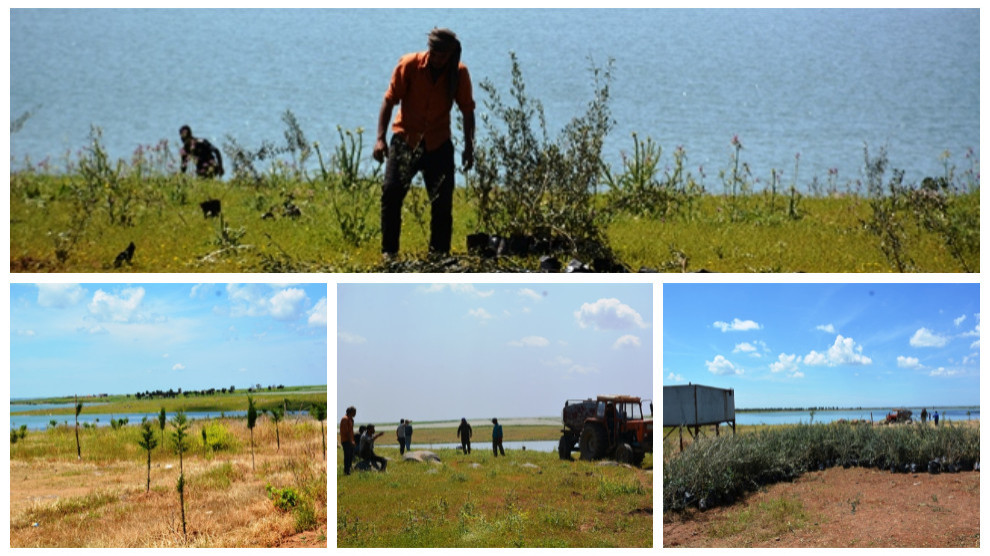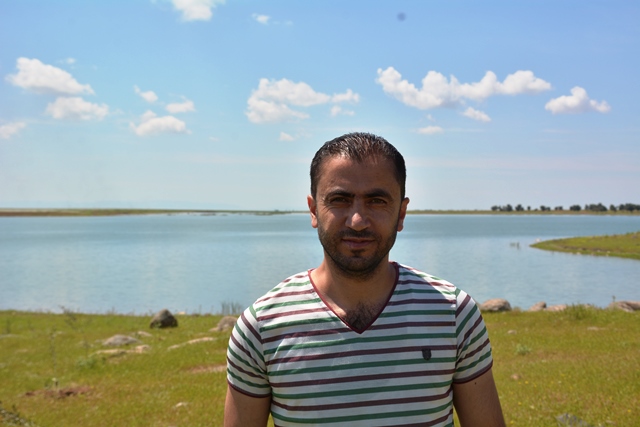Four thousand olive trees planted in Tirbespiyê
The ecological reconstruction in Rojava continues. In the north of Tirbespiyê 4,000 olive trees were planted as part of a greening project.
The ecological reconstruction in Rojava continues. In the north of Tirbespiyê 4,000 olive trees were planted as part of a greening project.

In the north of Tirbespiyê (al-Qahtaniyya), an originally Assyrian town in the canton of Hesekê, 4,000 olive trees and other fruit trees have been planted on a former pasture area as part of the ecological reconstruction in Rojava. The area had previously been declared as a public green space, and livestock farming is therefore no longer permitted. The project is implemented by the local forestry office in cooperation with the Department of Agriculture and Livestock.
Syria was densely forested in ancient times, but the country's flora and fauna has been impoverished by thousands of years of settlement. Today, Northern and Eastern Syria has the most fertile arable land and a wide variety of plants thrive in the region. But at the latest with the construction of the Baghdad railway from Konya to Baghdad more and more trees were burnt and Rojava was used as a granary for decades. As a result, the region was mainly dominated by agricultural land, with only a few trees remaining. Under Baath rule it was even forbidden to plant new trees. Since the revolution of Rojava, reforestation has been one of the core activities in the northeast Syrian autonomous region.
"In this sense, we regularly carry out greening work here in Tirbespiyê. Trees are very important for the soil because they take care of the nutrient balance. So far we have planted around 10,000 trees in our city. However, our reforestation campaigns are still far from reaching their goal," says Luqman Bedir from the forestry office in Tirbespiyê.
 Luqman Bedir, Foto: ANHA
Luqman Bedir, Foto: ANHA
Tirbespiyê
Tirbespiyê is originally an Assyrian city, founded in the 1920s and officially called Qbor el-Bid until 1962. Its old name was derived from the Aramaic words "Qoreh" ("graves") and "khworih" ("white") – i.e. "white graves". The Kurdish name has the same meaning. Today the majority of the population is Kurdish, but there are also a relevant number of Assyrians and Aramaeans.
Ecological society in Rojava
With Rojava, the Kurdish freedom movement in northern Syria has built a model of society in which co-existence is organized in a democratic, ecological and gender-equal manner. These are the three pillars of "democratic confederalism", the political concept of the imprisoned Kurdishmastermind Abdullah Öcalan, which was made public in 2005. It goes back to ideas of Murray Bookchin, Immanuel Wallerstein and others and realizes the unity of man and nature as a guideline for social development.
RELATED NEWS: